20 Back-Country Essentials For Day Hikes In The Mountains

To begin, planning when and where is an essential step to hiking as well as including these 20 Back-country Essentials For Day Hikes In The Mountains will make your hike safer and more enjoyable. Nothing worse than being caught off guard on a long hike. Mishaps and injuries happen while hiking, therefore packing the right items is crucial before hitting the backcountry.
Hiking has become one of the hottest new trends with over a possible 35 million people hiking Nation Parks worldwide each year. If you are not prepared an enjoyable hike can turn into a nightmare.
20 Back-Country Essentials
Everything you need for hiking!
The list below is based on ideas of best sellers on Amazon.
- Backpack – A good comfortable, lightweight, tear, and water-resistant bag that can carry all you need is essential to any hike.
- All-weather Jacket – A jacket that is breathable, waterproof, and comfortable.
- Hiking boots – (Highly Recommended) Well-fitted, good grip, and water-resistant hiking shoe/boot.
- Hiking Poles – These are a must. They are my trial buddy and help so much.
- Camera – Capture the moments. A phone camera or a lightweight, compact camera is best.
- Sunglasses – protect your eyes from the sun.
- Navigation gear – Don’t get lost along with an emergency Garmin device.
- Fire Starter – Lighter or matches will do but a waterproof kit works best.
- Bear spray – A must on any trail.
- Air horn – Scare wild game such as Cougars, Moose, and Bears
- Knife or Multi Tool – Survival period.
- Binoculars – Lightweight, water/fog proof. Great for zooming in on those scenic sights.
- Whistle – For safety, let people know where you are and may word off animals as well.
- Flashlight – Guides in the dark or when you want to enter caves.
- First aid kit – Doesn’t have to be fancy but enough to dress wounds.
- Sunscreen – Lightweight, high SPF, and waterproof.
- Bug spray – Keep away those pesky critters. Tic removal kit, if someone gets a tic.
- Toiletries – Biodegradable, Environment-friendly. Toilet paper works although sometimes nature calls and staying clean is imperative. If possible always try and pack it back out or bury it.
- Towel – Compact, fast drying. You never know when you want to jump in to cool off, wipe the sweat, or fall in the creek.
- Cleats / Crampons (Highly recommended)for ice and slippery areas and Snowshoes for hiking on snow.
These are all essentials for back-country hikes however, food and water remain of the utmost importance.
- Food – Essential to fuel the body. Eat a healthy breakfast with whole grains, eggs, and low-fat yogurt. Cliff bars are a great snack. Keep food tightly packaged for safety.
- Water/hydration. ( VERY IMPORTANT) Drink a least a 1/2 liter of water per hour on a moderate hike. Replenishing electrolytes naturally. Whip up a smoothie of banana, orange, and pineapple is great before a hike.
- I also like to bring duct tape with us as well. Can come in handy if anything breaks or a start of blisters. I wrap my ankles before a hike to prevent blisters.
Winter Essentials
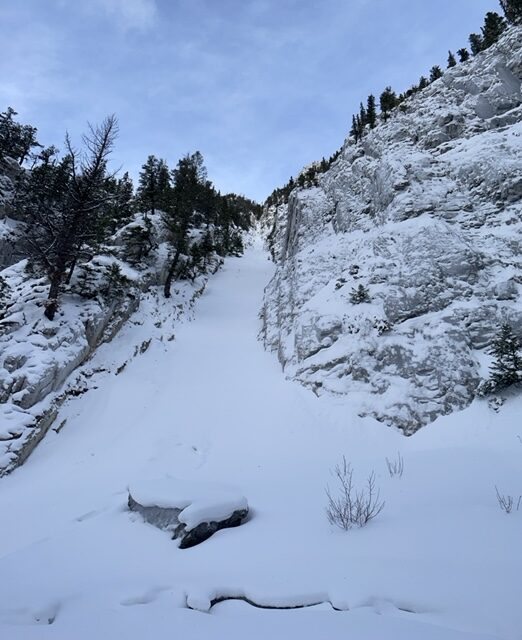
Potential Avalanche areas
- Shovel – avalanche resource.
- Helmet – always be aware of overhangs and caves.
- Hothands Warmers – Instant heat.
- Garmen Locator – emergency locator
Trekking poles have become my savior while hiking for many reasons. The benefits of trekking poles may surprise you.
Always check for Avalanche risks in the area before heading out. Many hikes may not appear to be risky however are.
Be Aware
Remember: Be BEAR smart! If nothing else always carry bear spray as this can prevent an attack from many wild species that one may encounter.
- Always be aware of your surroundings at all times.
- Carry bear spray.
- Never run from a bear or turn your back.
- Make noise during the hike but not enough to annoy other hikers enjoying the quiet sounds of nature.
- Talk calm but look big
- Bear bells are not the best option, as bears won’t hear it until they are at you. ( many say carrying bells are dinner bells)
Winter hiking
Winter hiking can be very enjoyable if you come prepared. Dress warmly in layers so you can remove layers as needed. A good breathable, comfortable, and quick dry material base layer is a must. For Women / For Men
For winter hiking there can be a lot of ice and slippery sections on hills where slip devices for your footwear are a must. Impressive how much more traction you have with these.
Buying the ice cleats with a foot strap will help as they are subject to sliding off easily and can be quite a pain. These are good for walk in parks or smaller hikes. I prefer to use Micro Spikes for every situation, easy to use, and durable.
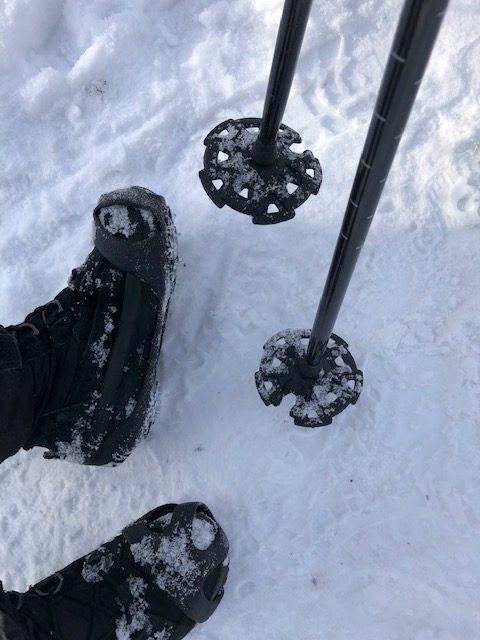
This blog is based on experience.
Inexperienced, we hiked in the rain and my hubby had a water-resistant jacket and I used a cheap poncho. I was drenched as the water kept hitting my pants and leaking down my front and back. Not a good choice. He stayed dry everywhere. Literally, I looked like a drowned rat. Ended up taking the poncho off.
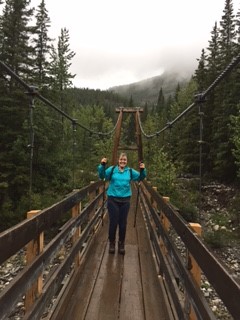
Another time went into caves and our flashlight died so we used our iPhone light, Not! Did nothing.
Did not plan for the day and ended up hiking a 5-hour hike with little water and no snacks which resulted in dizziness and not a very comfortable hike. Not to mention eating a high-fat breakfast that morning resulted in low energy.
At 58 with some physical ailments using trekking poles was a godsend. unbelievable the difference they make. They are like 2 extra legs. lol
A great book to read is Bushcraft 101, to learn more about Wilderness Survival.
It is a great idea to log your adventures so you can keep track of all the experiences as well as it is nice to have a keepsake to pass down for generations. I recommend Hiking Adventure Log Book found on Amazon.
Happy Hiking!!
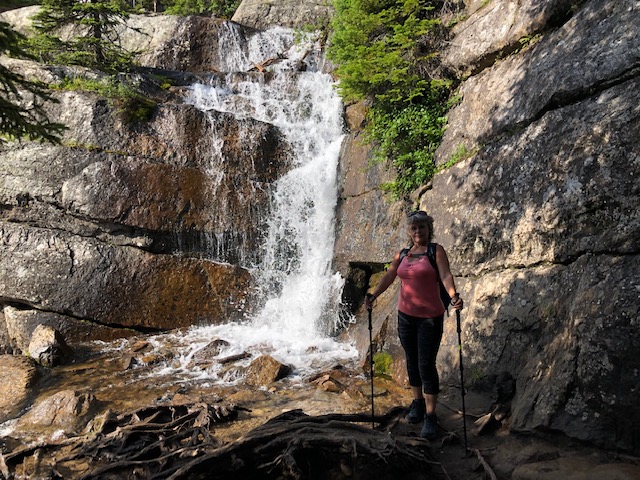
Conclusion:
Even if you are not an avid hiker, I can’t stress enough how important it is on ANY hike to carry BEAR SPRAY and have proper FOOTWEAR.
It is surprising how many people are unprepared. Even on touristy hikes for example Johnston Canyon in Banff, so many people slip and slide trying to hang on to rails, or tree branches to stop a fall. Quite frankly it ruins the hike, especially if one gets hurt.
Just because it’s busy does not mean a bear or other wildlife won’t come through at any point and time. Even in a parking lot or picnic areas wildlife can show up, which is often the case.
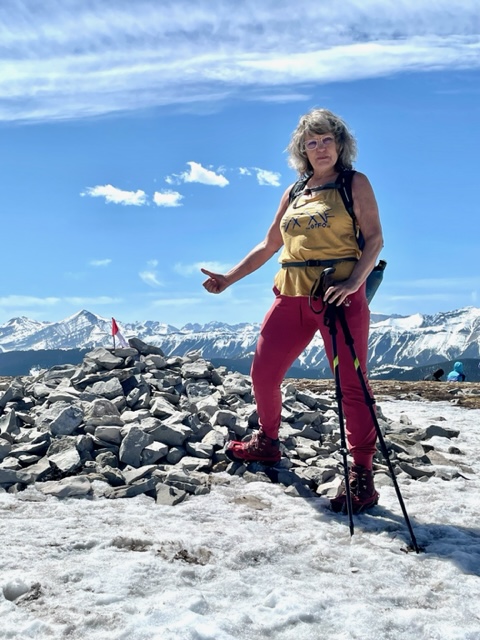
Today, over 100 hikes over 3 yrs we have so much more experience and knowledge of the backcountry however there is always so much to learn. Hope this blog helps save a few people from bad experiences.
Happy Trails!!

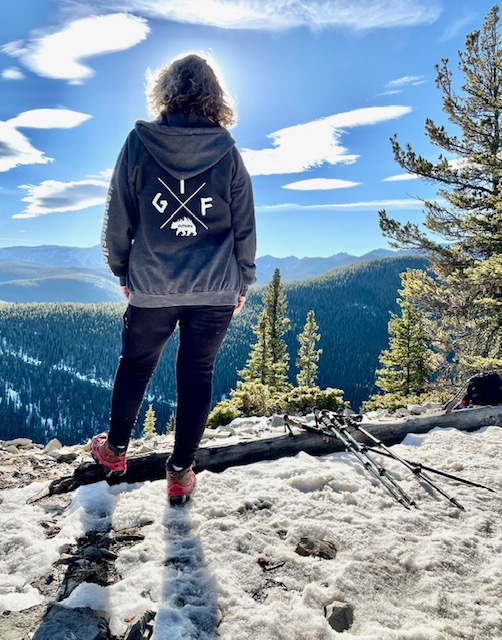
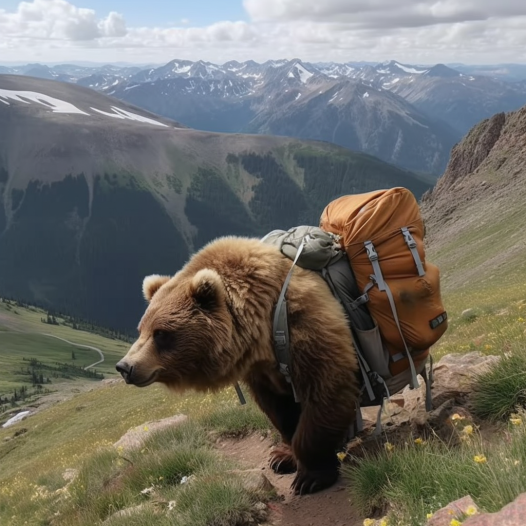
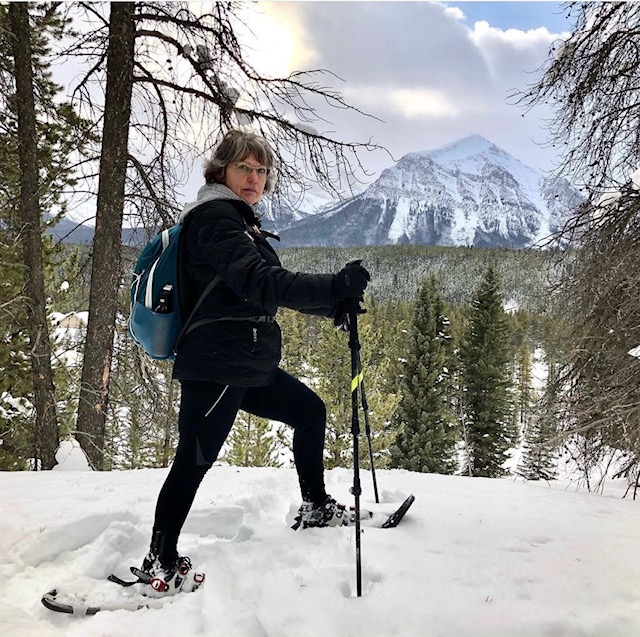
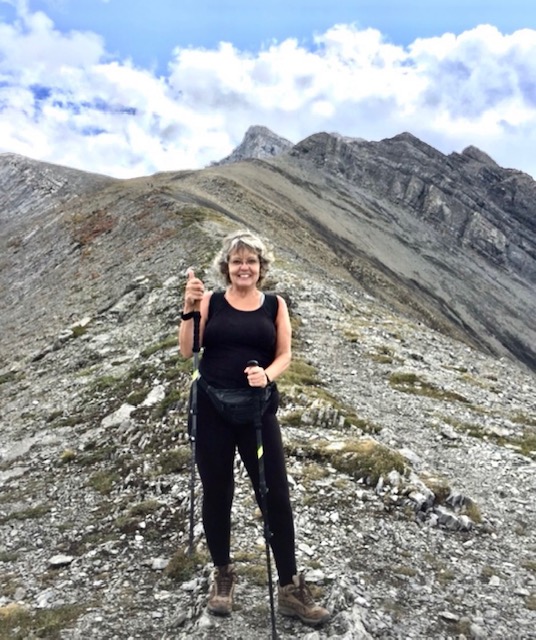




This was so helpful! I am grateful for resources like this. As an AuDHD person who also has Anxiety, being able to read about it before doing it really helps! It gives me the preparation I need to feel ok, and actually enjoy myself. THANK YOU!
Happy you found it useful. Happy trails!!